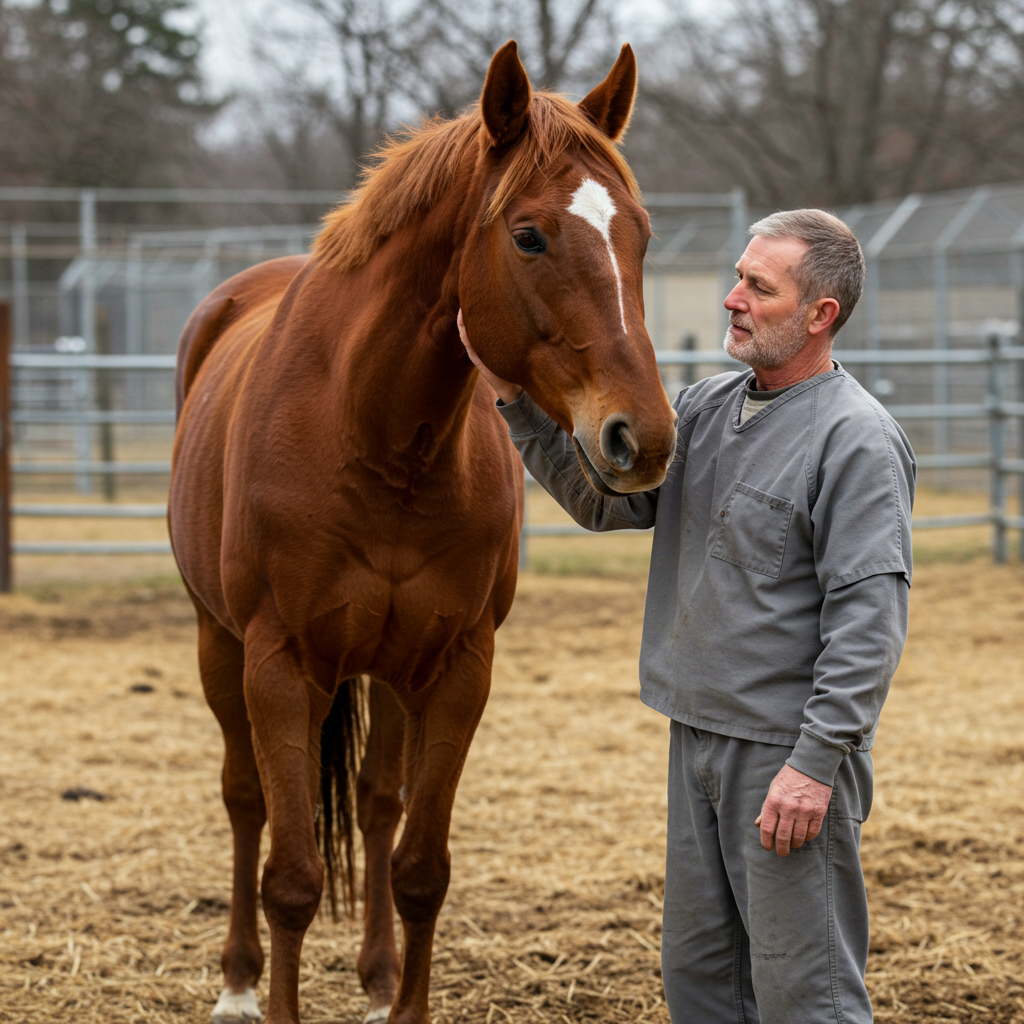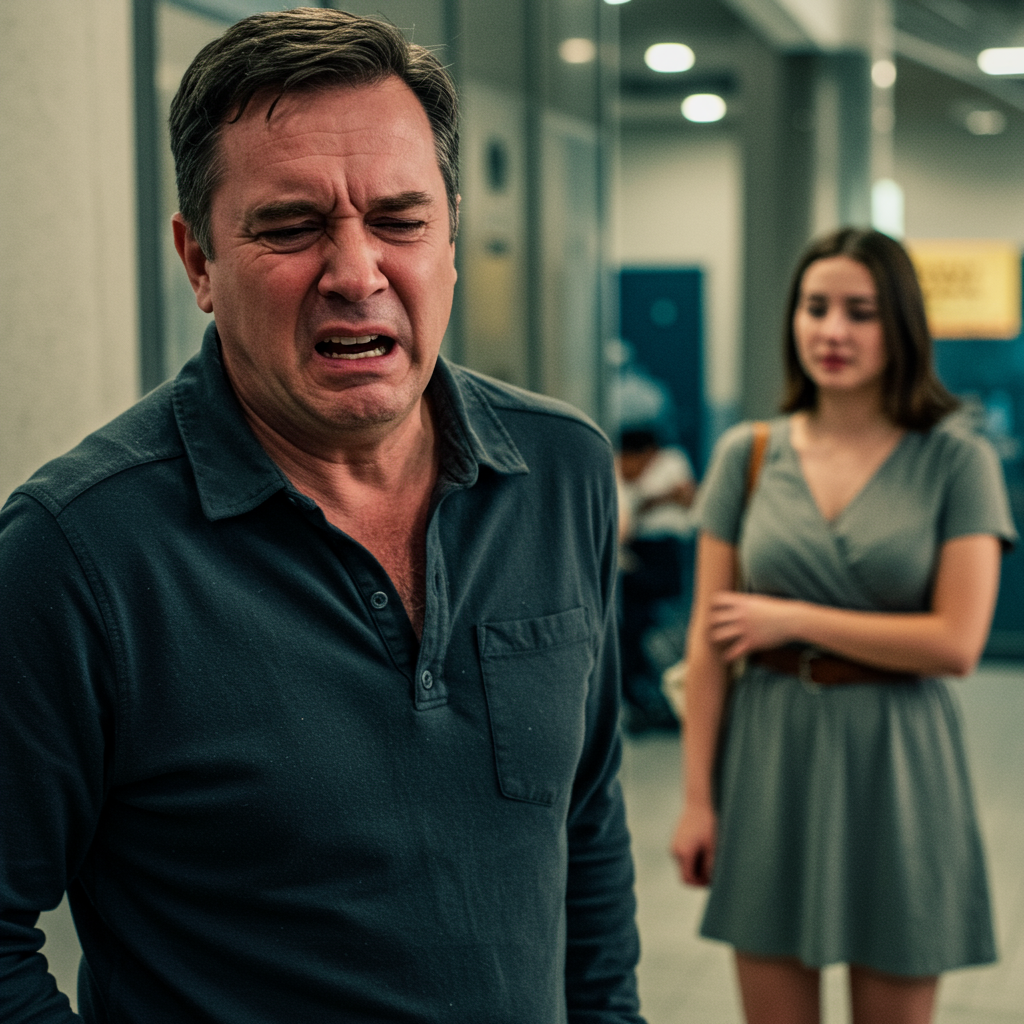A quiet crisis faces America’s veterans: they are nearly twice as likely as civilians to be arrested or jailed at some point in their lives. Behind these numbers often lies the invisible weight of trauma, stemming from service experiences. But within the walls of Collin County Jail in Texas, a groundbreaking program is harnessing the intuitive power of horses to offer a path to healing and rehabilitation for incarcerated veterans.
Addressing a Disproportionate Challenge
Statistics reveal the stark reality: roughly one-third of U.S. war veterans have been arrested or jailed during their lifetime. Veterans make up around 8% of the nation’s prison population, with over 100,000 veterans incarcerated according to recent data. This significant disparity highlights the unique challenges many veterans face after leaving military service – challenges that can sometimes lead to destructive behaviors and involvement with the criminal justice system.
“One of the things about a veteran is that when you leave the tribe, not everybody deals with it the same way,” says Collin County Sheriff Jim Skinner, a veteran himself who leads the initiative. Skinner understands that the transition can be difficult, sometimes leading veterans struggling with anxiety and unresolved trauma to make poor choices, including substance abuse, which can result in incarceration.
Introducing the Valor Program and Equine Therapy
Established in 2018, the Veterans Accessing Lifelong Opportunities for Rehabilitation (Valor) program was created specifically to address these issues among incarcerated veterans. Valor offers a comprehensive suite of services, including mental health counseling, anger management groups, and support for combat-related Post-Traumatic Stress Disorder (PTSD). A cornerstone of its innovative approach is horse-assisted therapy, also known as equine therapy.
The program works with dozens of veterans across Texas, bringing them out of their cells for mornings spent learning and interacting with horses. Seasoned horse trainer Pat Puckett, a 75-year-old Vietnam veteran who found solace and a new direction in “cowboying” after his service, guides the sessions.
The Healing Power of the Horse-Human Connection
Equine therapy leverages the unique sensitivity of horses. Unlike humans, horses react immediately and honestly to a person’s emotional state. This provides participants with immediate, non-judgmental feedback on their internal state, compelling them to become more aware of their emotions and learn self-regulation.
In the round pen, under the Texas sun, veterans gather to learn the basics. One nervous student attempts to put a bit in a horse’s mouth, but the animal resists, pulling its head away. The instructor, Puckett, steps in, explaining to the group, “Horses are sensitive. People are not. We’ll never be as sensitive as a horse – but we can try.”
Puckett specializes in “natural horsemanship,” a philosophy rooted in cooperation rather than dominance. This approach requires the human to remain calm and centered – a profound challenge for anyone living with a dysregulated nervous system due to trauma. Mastering the subtle communication needed to guide a horse without force becomes a powerful exercise in patience, presence, and trust.
Stories of Transformation
For incarcerated veterans like Jeffrey Philips, a Navy veteran whose trauma stemmed from experiences outside of combat deployments – the death of a friend during training and later the suicides of two close friends – unresolved grief and anxiety led to multiple DUI arrests and eventual incarceration. Philips found his way to Valor. His story highlights that the source of trauma leading to PTSD and subsequent difficulties isn’t confined to battle.
Ashley Davis, a former Navy nurse also participating in the Valor program, shares how working with the horses provides tangible tools. “Working with the horses has helped me recognise when I’m starting to struggle and it’s helping me understand that I have to regroup. I got to breathe, I got to centre myself,” she explains. “It’s giving me some tools in my toolbox that I can take with me… so that I don’t sabotage my life again.”
Learning to gain a horse’s trust, perhaps by simply resting a hand on its head until the animal feels safe enough to lower its guard, becomes a powerful metaphor for rebuilding trust in themselves and developing emotional control.
Evidence and Expansion
While equine therapy programs in correctional facilities date back to the 1970s, Valor stands out as one of the few focused exclusively on incarcerated veterans. A growing body of research supports the efficacy of such programs, indicating significant psychological and behavioral benefits for veterans, including increased self-esteem, improved emotional regulation, reduced stress, and potentially decreased reoffending rates by fostering empathy, hope, and a sense of belonging. Sheriff Skinner sees it as particularly effective for the severe anxiety and PTSD common among veterans in custody.
The Valor program participants undergo five days of intensive horse training workshops, followed by two months of weekly therapy sessions with the animals. The program culminates in a celebratory trail ride. Recognizing the program’s impact and potential, Sheriff Skinner and his team are actively scaling up, building permanent stables to support its growth.
Through the patient connection between horse and veteran, Valor is offering a lifeline, addressing the deep-seated trauma that contributes to veteran incarceration and providing these individuals with the tools and hope needed for a stable future beyond bars.




